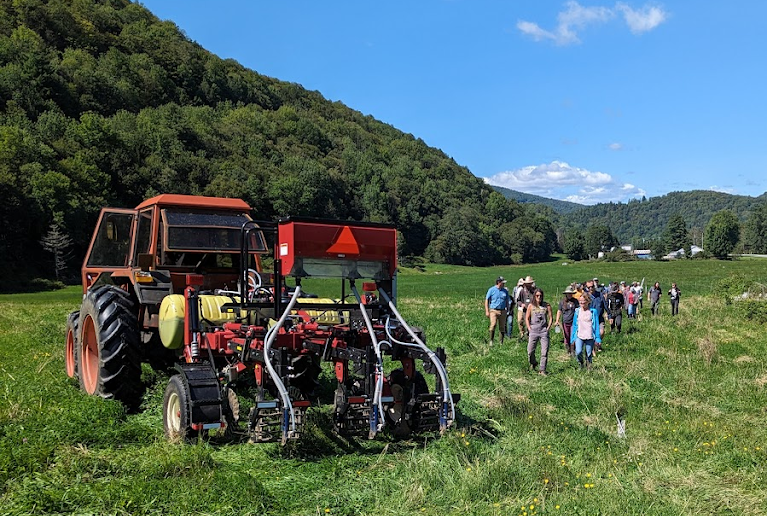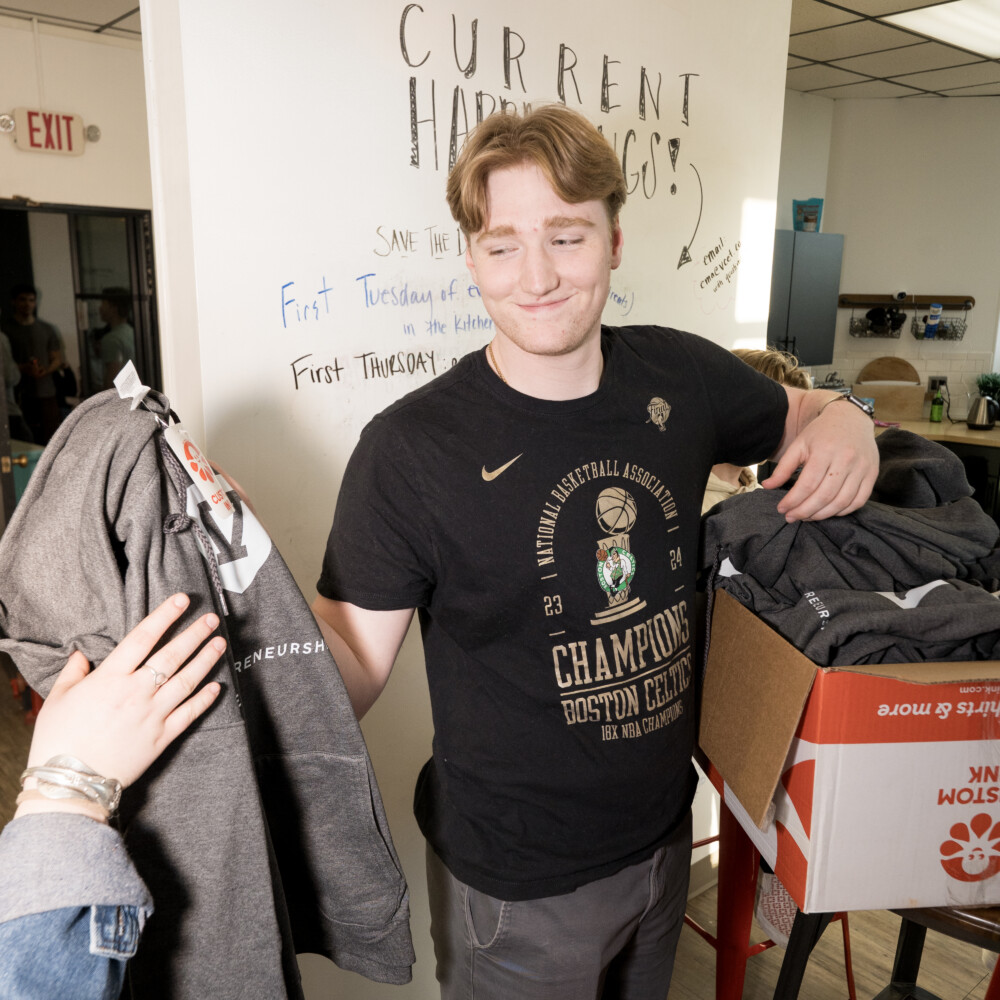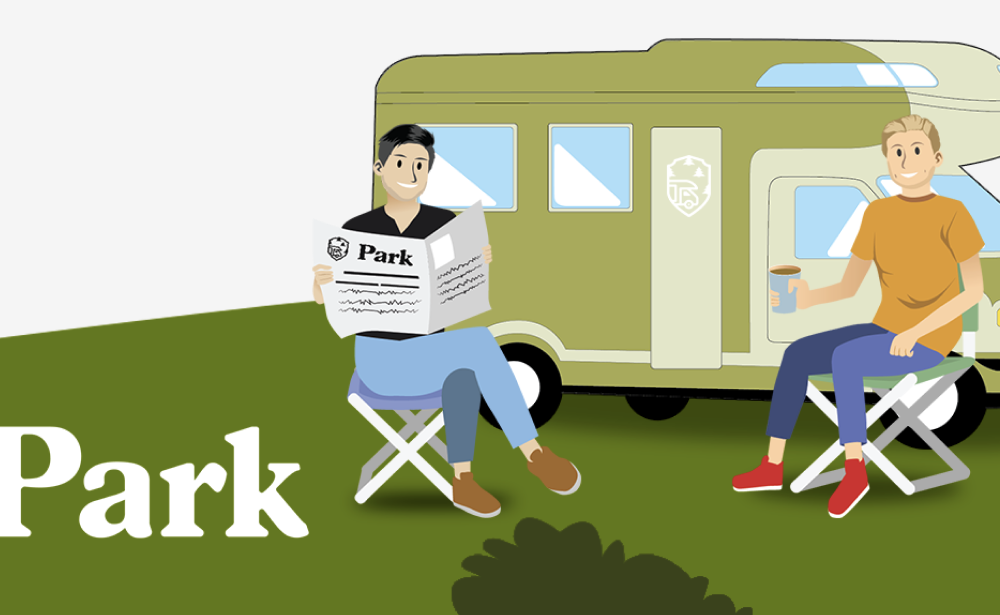
Sophia Rabe, Founder and CEO of Olive & Milo
Who?
Sophia Rabe, who goes by Sophie, is the founder and CEO of Olive & Milo, a company focused on helping small and local businesses grow by creating strong platforms where stories can be shared, all while reaching their targeted audience, and increasing sales and brand awareness. According to Sophie, “I always had the drive to do my own thing, that’s why I started Olive and Milo. Since then, we work with about 40 clients across the United States and a couple in Canada. We do anything from full-service social media management and paid ads to consulting.”
What do you think helps you work best?
“Tools. Phoebe and Sam always laugh because I’m the tool meister. I do a ton of research on apps and CRMs. Just different online tools that really help me manage my team, clients, and workflow. Managing all of my client’s to-do lists and having them in a particular organized way, we are able to prioritize everything and seek out the best project management. Having systems in place and the tools to do that helps me work at my best.”
Any short-term or long-term goals for the year?
“We have been in such a steady flow of new clients that we haven’t really been able to sit down and set new goals. When I started [Olive & Milo], I took on whoever wanted to hire me, obviously within reason. And of course, that was during the time that I was trying to figure out my price points. I think this happens with a lot of entrepreneurs where they have a good idea and just go for it. I didn’t write a business plan with all of my pricing figured out and decided I was going to learn as I went. So now I have a lot of legacy clients that are paying me absolutely nothing, and since I’ve started [Olive & Milo] I’ve gained several clients who are paying me what they should be paying me because I’ve learned what my pricing should be. So one of my goals is to have 15 really awesome solid paying clients with room for three or four other lower-scale clients if possible.
What are some of your favorite things to do in Vermont?
“I’m from Vermont and where I grew up was super rural. I didn’t appreciate it as much when I was a kid because it took 45 minutes to get anywhere, and my parents always had to drive me before I had my license. Now that we’re in Williston and we’re not as rural, I really like going out and exploring Vermont and going back home; my parents still live on over a hundred acres of land. The river is my happy place in the summer. My husband is a really big disc golfer and we often go out and play the courses, or I’ll walk behind him with friends and let them play. Definitely hanging out with friends by the water in the summer is my go-to.”
Now that we’re coming out of the COVID era, what’s one of the hardest obstacles you faced as an entrepreneur? Any lessons to share?
“Before COVID, a lot of my clients were either remote or not based in Vermont. When I first started I found that Vermont businesses didn’t have the budget or the resources to advertise online. When we started working with more local clients, it went to show that with the right tools and systems in place you can be super collaborative, creative, and productive without having to meet in person. Coming out of [the pandemic] it shows that we can get so much done no matter where we are.”
What is one thing you wish someone had told you before starting your business?
“I think boundaries are really important, especially when you are your own business. People will take you seriously as a legitimate business but at the end of the day, my clients know it’s just me. I have older clients that will text me at two in the morning with a question, and I don’t know if they would do that if I wasn’t 29 or if I were more positioned as a corporate agency. I appreciate the closeness and the connections but I think setting those boundaries is really important. Pacing yourself is also good because you can burn out really easily.”
How has VCET helped you? Were there any resources you found particularly impactful?
“Everything. All the things! I joined VCET six or seven months into my business purely out of the fact that I had been working from home since I graduated from college and it felt like I didn’t really know anybody. After college, all your friends move and your new friends become the people that you start to meet at work. It gets lonely and when you’re 22 you want to go out with friends. I found VCET and was instantly attracted to the space and the community, and for me, that was really important – having a family away from family and a home away from home. That’s what drew me in but I always tell people that my business did a 360 when I joined VCET. I hired a lot of people that I met at VCET for help with my own business, outsourced clients’ work, and was hired by other VCET members. I feel like I owe so much of my success just from being part of the community.”
Published and edited by VCET Marketing Associate, Nicole Mattos-Parodi.



